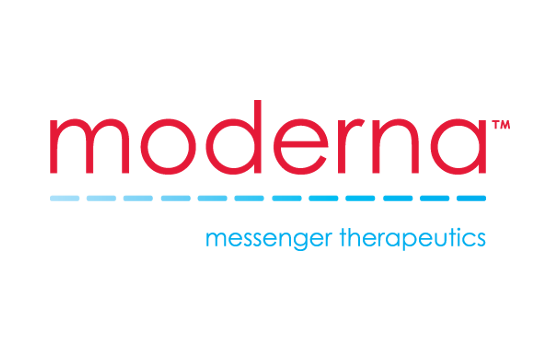 Moderna, Inc. (NASDAQ:MRNA), a biotechnology company pioneering messenger RNA (mRNA) therapeutics and vaccines, today is filing patent infringement lawsuits against Pfizer and BioNTech in the United States District Court for the District of Massachusetts and the Regional Court of Düsseldorf in Germany.
Moderna, Inc. (NASDAQ:MRNA), a biotechnology company pioneering messenger RNA (mRNA) therapeutics and vaccines, today is filing patent infringement lawsuits against Pfizer and BioNTech in the United States District Court for the District of Massachusetts and the Regional Court of Düsseldorf in Germany. Moderna believes that Pfizer and BioNTech's COVID-19 vaccine Comirnaty® infringes patents Moderna filed between 2010 and 2016 covering Moderna's foundational mRNA technology. This groundbreaking technology was critical to the development of Moderna's own mRNA COVID-19 vaccine, Spikevax®. Pfizer and BioNTech copied this technology, without Moderna's permission, to make Comirnaty®.
"We are filing these lawsuits to protect the innovative mRNA technology platform that we pioneered, invested billions of dollars in creating, and patented during the decade preceding the COVID-19 pandemic," said Moderna Chief Executive Officer Stéphane Bancel."This foundational platform, which we began building in 2010, along with our patented work on coronaviruses in 2015 and 2016, enabled us to produce a safe and highly effective COVID-19 vaccine in record time after the pandemic struck. As we work to combat health challenges moving forward, Moderna is using our mRNA technology platform to develop medicines that could treat and prevent infectious diseases like influenza and HIV, as well as autoimmune and cardiovascular diseases and rare forms of cancer."
Consistent with its commitment to equitable global access, in October 2020, Moderna pledged not to enforce its COVID-19 related patents while the pandemic continued. In March 2022, when the collective fight against COVID-19 entered a new phase and vaccine supply was no longer a barrier to access in many parts of the world, Moderna updated its pledge. It made clear that while it would never enforce its patents for any COVID-19 vaccine used in the 92 low- and middle-income countries in the GAVI COVAX Advance Market Commitment (AMC 92), Moderna expected companies such as Pfizer and BioNTech to respect its intellectual property rights and would consider a commercially reasonable license should they request one for other markets. Pfizer and BioNTech have failed to do so.
"We believe that Pfizer and BioNTech unlawfully copied Moderna's inventions, and they have continued to use them without permission," said Moderna Chief Legal Officer Shannon Thyme Klinger. "Outside of AMC 92 countries, where vaccine supply is no longer a barrier to access, Moderna expects Pfizer and BioNTech to compensate Moderna for Comirnaty®'s ongoing use of Moderna's patented technologies. Our mission to create a new generation of transformative medicines for patients by delivering on the promise of mRNA science cannot be achieved without a patent system that rewards and protects innovation."
Recognizing the need to ensure continued access to these lifesaving vaccines, Moderna is not seeking to remove Comirnaty® from the market and is not asking for an injunction to prevent its future sale. In addition, Moderna is not seeking damages related to Pfizer's sales to AMC 92 countries and is not seeking damages for Pfizer's sales where the U.S. Government would be responsible for any damages. Consistent with Moderna's patent pledge, the Company is also not seeking damages for activities occurring before March 8, 2022.
Pfizer and BioNTech Infringe Moderna's Patents
Moderna believes Pfizer and BioNTech copied two key features of Moderna's patented technologies which are critical to the success of mRNA vaccines. When COVID-19 emerged, neither Pfizer nor BioNTech had Moderna's level of experience with developing mRNA vaccines for infectious diseases, and they knowingly followed Moderna's lead in developing their own vaccine.First, Pfizer and BioNTech took four different vaccine candidates into clinical testing, which included options that would have steered clear of Moderna's innovative path. Pfizer and BioNTech, however, ultimately decided to proceed with a vaccine that has the same exact mRNA chemical modification to its vaccine as Spikevax®. Moderna scientists began developing this chemical modification that avoids provoking an undesirable immune response when mRNA is introduced into the body in 2010 and were the first to validate it in human trials in 2015.
Second, and again despite having many different options, Pfizer and BioNTech copied Moderna's approach to encode for the full-length spike protein in a lipid nanoparticle formulation for a coronavirus. Moderna scientists developed this approach when they created a vaccine for the coronavirus that causes Middle East Respiratory Syndrome (MERS) years before COVID-19 first emerged.
None of the patent rights which Moderna is seeking to enforce relate to any intellectual property generated during Moderna's collaboration with the National Institutes of Health to combat COVID-19. That collaboration began only after the patented technologies at issue here were proven successful in clinical trials in 2015 and 2016.
About Moderna
In 10 years since its inception, Moderna has transformed from a science research-stage company advancing programs in the field of messenger RNA (mRNA), to an enterprise with a diverse clinical portfolio of vaccines and therapeutics across seven modalities, a broad intellectual property portfolio in areas including mRNA and lipid nanoparticle formulation, and an integrated manufacturing plant that allows for rapid clinical and commercial production at scale. Moderna maintains alliances with a broad range of domestic and overseas government and commercial collaborators, which has allowed for the pursuit of both ground-breaking science and rapid scaling of manufacturing. Most recently, Moderna's capabilities have come together to allow the authorized use and approval of one of the earliest and most-effective vaccines against the COVID-19 pandemic.Moderna's mRNA platform builds on continuous advances in basic and applied mRNA science, delivery technology and manufacturing, and has allowed the development of therapeutics and vaccines for infectious diseases, immuno-oncology, rare diseases, cardiovascular diseases, and auto-immune diseases. Moderna has been named a top biopharmaceutical employer by Science for the past seven years.